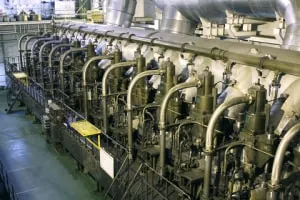
Diploma in Marine Diesel Engines 
Get a comprehesive understanding of Diploma in Marine Diesel Engines. This is a free course from Alison. AZ Class provides this course data for free. Learn more certificate and details here. Discover the fascinating world of marine diesel engines with the Diploma in Marine Diesel Engines course. This free online course provides a comprehensive introduction to the operational cycle of diesel engines, including the classification of engines into two strokes and four-stroke engines. Learn about the uses of medium-sized four-stroke engines in power generation, the thermodynamic cycles in diesel engines, and the advantages of diesel engines in the marine industry. Explore topics such as engine timing diagrams, performance monitoring, and the constructional features of diesel engines. Whether you're a student, researcher, or simply curious about diesel engines, this course is perfect for you. Enroll today and embark on your learning journey. ▼
ADVERTISEMENT
Course Feature
![]() Cost:
Cost:
Free
![]() Provider:
Provider:
Alison
![]() Certificate:
Certificate:
No Information
![]() Language:
Language:
English
Course Overview
❗The content presented here is sourced directly from Alison platform. For comprehensive course details, including enrollment information, simply click on the 'Go to class' link on our website.
Updated in [October 07th, 2023]
What does this course tell?
(Please note that the following overview content is from the original platform)
Diploma in marine diesel engines is a free online course that introduces you to the operational cycle of diesel engines, as well as the classification of the engine into two strokes and four-stroke engines. The course will introduce you to large two-stroke engines used for main propulsion or main engine, as well as the medium-sized four-stroke engines. The course will also highlight the uses of the medium-sized four-stroke engines in power generation, the operation of the internal combustion engines, features of the piston stroke, as well as the characteristics of the supercharging, and various turbocharging terminology in the study of marine diesel engines. The course examines the thermodynamic cycles in diesel engines, various classifications of diesel engines, the important terminologies that are applicable in a marine diesel engine, as well as the theoretical cycle guiding the operation of modern diesel engines. The OTTO, diesel, and dual combustion circle operated in diesel engines in the early 1900s, as well as the advantages of diesel engines in the marine industry, how it has made steam turbines obsolete at sea, and how it consumes less fuel will be covered in this course.
This course then explains why shipowners prefer single engine/single propeller designs, as well as how the RTA96C-14 engine can achieve a maximum power output of 108,920 hp at 102 rpm, and how at the maximum economy, the engine exceeds 50% thermal efficiency. The course also explains the timing diagrams of a diesel engine, as well as how a diesel engine develops power by combustion of fuel in its cylinders. The course then analyses the engine cycle, as well as the full series of separate steps or events essential for efficient engine operation. You will also learn about monitoring the performance of engines with respect to their running efficiency and emission restrictions, as well as the construction of the cylinder cover and mountings of a two-stroke diesel engine. The course outlines the features of the safety valve, fuel valves, indicator valves as well as how the cylinder cover seals the upper end of the cylinder space. This course will also teach you about the fundamental principles of diesel engines, the types and theoretical cycles of diesel engines, as well as the constructional features of the crosshead, connecting rod, as well as bearings of a two-stroke diesel engine.
Furthermore, this course will help you get familiar with the important diesel engine terminologies, the process of the cross-head bearing, the features of the Sulzer engine bearings and lubrication, as well as the timing diagram and power efficiency process in marine diesel engines. The course also illustrates how oil can be supplied to the crosshead via telescopic pipes in MAN B&W engines, and the concept of the Sulzer RTA engine connecting rod, as well as the machinery performance monitoring process, and the illustration of the typical cylinder pressure measurement. The course explains the modern methods of creating indicator diagrams and how faults in the injection process can be determined You will learn about the operation of the auxiliary engines, how the speed governing mechanism is applied in the auxiliary engine, as well as the concept of the performance assessment by indicator cards, and the procedure for taking indicator diagrams. This free online course will be of great interest to students, researchers, and anyone with an interest in diesel engines. So, register for this course and start your next learning journey today.
We considered the value of this course from many aspects, and finally summarized it for you from two aspects: skills and knowledge, and the people who benefit from it:
(Please note that our content is optimized through artificial intelligence tools and carefully reviewed by our editorial staff.)
What skills and knowledge will you acquire during this course?
During this course, learners will acquire the following skills and knowledge:
1. Understanding the operational cycle of diesel engines.
2. Classifying diesel engines into two-stroke and four-stroke engines.
3. Familiarity with large two-stroke engines used for main propulsion.
4. Knowledge of medium-sized four-stroke engines used in power generation.
5. Understanding the operation of internal combustion engines.
6. Knowledge of piston stroke features and supercharging characteristics.
7. Familiarity with various turbocharging terminologies.
8. Understanding thermodynamic cycles in diesel engines.
9. Knowledge of different classifications of diesel engines.
10. Understanding important terminologies applicable in marine diesel engines.
11. Knowledge of the theoretical cycle guiding the operation of modern diesel engines.
12. Understanding the advantages of diesel engines in the marine industry.
13. Knowledge of why shipowners prefer single engine/single propeller designs.
14. Understanding the power output and thermal efficiency of diesel engines.
15. Knowledge of timing diagrams and power development in diesel engines.
16. Understanding the engine cycle and steps for efficient engine operation.
17. Monitoring engine performance and emission restrictions.
18. Understanding the construction and features of cylinder covers and mountings.
19. Knowledge of safety valves, fuel valves, and indicator valves.
20. Understanding the fundamental principles and constructional features of two-stroke diesel engines.
21. Familiarity with important diesel engine terminologies.
22. Understanding the process of cross-head bearing and Sulzer engine bearings and lubrication.
23. Knowledge of timing diagrams and power efficiency in marine diesel engines.
24. Understanding oil supply mechanisms in crosshead and Sulzer RTA engines.
25. Knowledge of machinery performance monitoring and cylinder pressure measurement.
26. Understanding modern methods of creating indicator diagrams and detecting injection faults.
27. Knowledge of auxiliary engine operation and speed governing mechanisms.
28. Understanding performance assessment through indicator cards and taking indicator diagrams.
By completing this course, learners will gain a comprehensive understanding of marine diesel engines and their operation, making it suitable for students, researchers, and anyone interested in diesel engines.
Who will benefit from this course?
This course will benefit individuals who are interested in or working in the marine industry, specifically in the field of marine diesel engines. It is suitable for students studying marine engineering or related disciplines, researchers conducting studies on diesel engines, and professionals working with marine diesel engines.
Specific professions that will benefit from this course include:
1. Marine Engineers: This course provides a comprehensive understanding of marine diesel engines, including their operational cycle, classification, and thermodynamic cycles. Marine engineers will gain valuable knowledge and skills to operate and maintain marine diesel engines effectively.
2. Shipbuilders and Shipyard Workers: Shipbuilders and shipyard workers involved in the construction and maintenance of ships will benefit from this course as it covers the constructional features of marine diesel engines, such as cylinder covers, mountings, crosshead bearings, and lubrication systems. This knowledge will help them in their work and ensure the proper functioning of marine diesel engines.
3. Maritime Industry Professionals: Professionals working in the maritime industry, such as shipowners, ship operators, and fleet managers, will benefit from this course as it explains the advantages of diesel engines in the marine industry and their impact on fuel consumption and efficiency. This knowledge will assist them in making informed decisions regarding engine selection and operation.
4. Researchers and Academics: Researchers and academics studying marine diesel engines or related topics will find this course valuable as it covers various aspects of diesel engines, including theoretical cycles, performance monitoring, and fault detection. The course provides a solid foundation for further research and academic studies in the field.
5. Diesel Engine Technicians: Technicians responsible for the maintenance and repair of marine diesel engines will benefit from this course as it covers topics such as timing diagrams, power development, and performance assessment. The course will enhance their understanding of diesel engine operation and enable them to diagnose and troubleshoot engine issues effectively.
Course Syllabus
Fundamental Principles of Diesel Engines
In this module, you will be introduced to the fundamental principles of diesel engines, as well as the types and theoretical cycles of diesel engines. You will also be introduced to the important diesel engine terminologies, as well as the timing diagram and power efficiency process in marine diesel engines.Main Diesel Engines
In this module, you will be introduced to the constructional features of two-stroke and four-stroke diesel engines used onboard ships. You will also be introduced to cylinder cover and mountings as well as the construction of cylinder cover and mountings of a two-stroke diesel engine.Diploma in Marine Diesel Engines - First Assessment
You need to score 80% or more to pass.Camshaft and Four-Stroke Engine
In this module, you will be introduced to the basic principles of camshaft engines as well as the camless design of B&W and Sulzer's main diesel engines. You will also be introduced to the use of the four-stroke engine in the marine industry as well as the construction features in a four-stroke engine.MAN Vee-Type Trunk Piston and Auxiliary Engines
In this module, you will be introduced to the MAN Vee-type trunk piston and auxiliary Engines. You will also be introduced to lubrication of the trunk type engines as well as the constructional features, advantages, types, as well as the operation of auxiliary engines.Diploma in Marine Diesel Engines - Second Assessment
You need to score 80% or more to pass.Course assessment
Course Provider
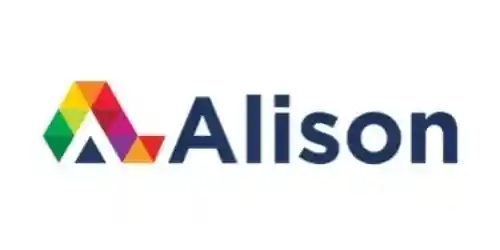
Provider Alison's Stats at AZClass
Discussion and Reviews
0.0 (Based on 0 reviews)
Explore Similar Online Courses
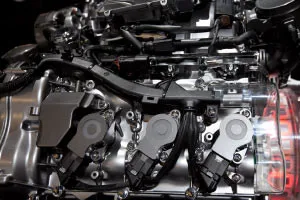
Mechanical Engineering - Internal Combustion Engine Basics
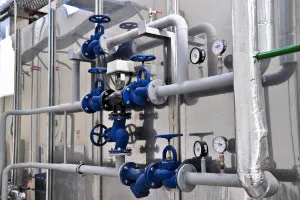
Industrial Engineering - Control Valve Basics

Python for Informatics: Exploring Information

Social Network Analysis

Introduction to Systematic Review and Meta-Analysis

The Analytics Edge

DCO042 - Python For Informatics

Causal Diagrams: Draw Your Assumptions Before Your Conclusions

Whole genome sequencing of bacterial genomes - tools and applications
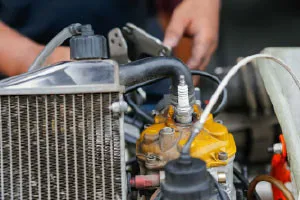
Diesel Engine Cycles Maintenance & Control
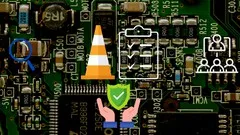
ISO 26262 Crash Course: Functional Safety Mastery


Start your review of Diploma in Marine Diesel Engines